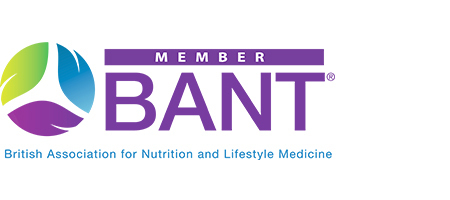The Crucial Role of Fats in Hormonal Health, Gut Health and Weight Management: What You Need to Know

posted 25th July 2025

Fats often get a bad reputation, especially with the rise of low-fat diets.
However, when it comes to hormone health, gut health, weight management, and overall wellness, fats are not only essential—they are absolutely necessary.
As a Functional Medicine Practitioner and Nutrigenomics Specialist, I have seen first-hand the crucial role that fats play in maintaining hormonal balance, supporting metabolic function, and even facilitating weight loss.
In this article, we will explore why fats are not just a dietary “evil” but are, in fact, vital for optimal health, and how cholesterol levels are not directly impacted by dietary cholesterol.
1. Fats: A Vital Building Block for Hormones
Fats are a primary building block for all of our hormones, particularly steroid hormones such as oestrogen, testosterone, cortisol, and progesterone. These hormones play a significant role in regulating metabolism, stress responses, and reproductive health, which is why optimal fat intake is so important.
Cholesterol, a type of fat, is the precursor for all steroid hormones. Without sufficient dietary fat, the body struggles to produce the hormones needed for regular bodily function.
When we consume healthy fats, we provide the body with the raw materials needed for hormone synthesis, including the synthesis of vitamin D, another fat-soluble substance crucial for immune function and bone health.
2. Dietary Cholesterol Does Not Affect Blood Cholesterol Levels
One of the most persistent myths about fat is the belief that eating cholesterol-rich foods will raise blood cholesterol levels. This idea was widely accepted for years, but current research shows that dietary cholesterol has minimal effect on most people’s blood cholesterol levels. In fact, the liver produces all the cholesterol our body needs, and it adjusts its production based on our intake of cholesterol from food.
In individuals with healthy metabolisms, dietary cholesterol from sources such as eggs, shellfish, and lean meats does not raise cholesterol levels in the blood. Instead, it is the balance between different types of fats (saturated, unsaturated, and trans fats) in the diet that influences cholesterol levels.
3. The Role of Good Fats in Weight Management and Metabolism
When it comes to weight management, good fats are key players. Fats are calorie-dense, meaning they provide long-lasting satiety and energy. Unlike carbohydrates, which can spike blood sugar and insulin levels, fats do not cause large fluctuations in blood sugar. This helps prevent the insulin spikes that contribute to fat storage.
Including healthy fats in your diet—such as avocados, nuts, seeds, olive oil, and fatty fish—helps maintain steady energy levels throughout the day.
By providing slow-release energy, good fats can also curb hunger, making it easier to manage portion sizes and resist unhealthy cravings.
Furthermore, fats support metabolic functions, particularly in balancing blood sugar and insulin levels.
High-quality fats, particularly omega-3 fatty acids found in fish and flaxseeds, support the body’s ability to metabolise glucose efficiently, reducing the risk of insulin resistance, a precursor to type 2 diabetes.
4. The Connection Between High Blood Sugar, Insulin, and Cholesterol
The relationship between blood sugar, insulin, and cholesterol is a critical one. Elevated blood sugar levels (hyperglycaemia) trigger the pancreas to release insulin to regulate sugar levels. However, when insulin levels are persistently high, the body becomes resistant to insulin. This condition, known as insulin resistance, is often linked to metabolic syndrome, obesity, and cardiovascular disease.
Insulin resistance not only impacts blood sugar control but also has a significant effect on cholesterol levels.
High levels of insulin cause the liver to produce more cholesterol, particularly low-density lipoprotein (LDL), the “bad” cholesterol. Simultaneously, high insulin levels can lead to a reduction in high-density lipoprotein (HDL), the “good” cholesterol, which is necessary for removing excess cholesterol from the bloodstream.
This imbalance in LDL and HDL can increase the risk of plaque formation in arteries, contributing to the development of atherosclerosis and cardiovascular diseases.
Therefore, managing insulin resistance by reducing refined carbohydrate intake and increasing healthy fat consumption can help balance cholesterol levels and reduce overall heart disease risk.
5. Fats in Functional Medicine: A Holistic Approach
In functional medicine, we focus on addressing the root cause of conditions, rather than simply managing symptoms.
From this perspective,fats are integral to our overall well-being. Not only do they influence hormone production and metabolism, but they also play a role in reducing inflammation, supporting cellular repair, and enhancing cognitive function.
Omega-3 fatty acids, in particular, have well-documented anti-inflammatory properties. Chronic inflammation is a contributing factor to a range of conditions, including heart disease, autoimmune diseases, and neurodegenerative disorders.
Including omega-3-rich foods such as salmon, mackerel, and chia seeds in the diet can help lower inflammation andimprove cardiovascular health, thus balancing cholesterol levels.
Moreover, healthy fats support the body’s detoxification processes. Fat-soluble vitamins (A, D, E, and K) require fat for proper absorption and function. Inadequate fat intake can lead to deficiencies in these vitamins, further compromising immune function, bile function and hormonal health.
6. Embrace the Power of Healthy Fats
Incorporating healthy fats into your diet is one of the most effective ways to support hormonal health, gut health, manage weight, and balance cholesterol levels.
By understanding that dietary cholesterol does not affect blood cholesterol in most individuals, and by focusing on the right types of fats, you can significantly improve your health.
Remember, fats are not the enemy—they are essential for hormone production, metabolic function, and overall wellness.
If you are looking to balance your hormones, support weight loss, and optimise your health, focusing on quality fats is one of the first steps.
Incorporate more avocados, olive oil, fatty fish, and nuts into your meals, and watch how your health improves. Your body—and your hormones—will thank you.
Need more clarity? Book a FREE 30 minute consultation today!
Timea
Registered Nutritional Therapist - Nutrigenomics Specialist - Functional Medicine Practitioner













